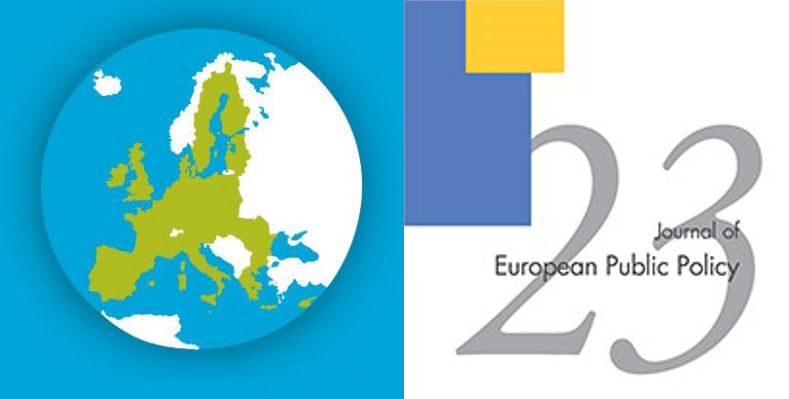 JEPP and the European Union Studies Association (EUSA) continue their collaboration to publish the best conference papers of the biennial EUSA conferences in a special issue, guest edited by EUSA. As the third special issue of this exciting collaboration is now available through the JEPP website (read the intro here and Alasdair Young’s blog post here), EUSA has issued the call for papers for the next biennial conference to be held in Miami from May 4-6, 2017. Abraham Newman will act as the guest editor of Miami-issue. If you want to be in it, make sure you are on the programme!
JEPP and the European Union Studies Association (EUSA) continue their collaboration to publish the best conference papers of the biennial EUSA conferences in a special issue, guest edited by EUSA. As the third special issue of this exciting collaboration is now available through the JEPP website (read the intro here and Alasdair Young’s blog post here), EUSA has issued the call for papers for the next biennial conference to be held in Miami from May 4-6, 2017. Abraham Newman will act as the guest editor of Miami-issue. If you want to be in it, make sure you are on the programme!
Month: June 2016
Journal Citation Reports available for 2015
 Thomson & Reuters has just released the new impact factor scores for 2015. JEPP’s 2015 two-year impact factor score once again rose to new heights and now stands at 1.964, the highest score JEPP has ever received. Adding to that, JEPP clinched an unprecedented spot among the top twenty on the Political Science list, now ranking at 19/163. In the Public Administration list, JEPP stands at 7/47.
Thomson & Reuters has just released the new impact factor scores for 2015. JEPP’s 2015 two-year impact factor score once again rose to new heights and now stands at 1.964, the highest score JEPP has ever received. Adding to that, JEPP clinched an unprecedented spot among the top twenty on the Political Science list, now ranking at 19/163. In the Public Administration list, JEPP stands at 7/47.
Uncovering the influence of international bureaucracies

Assessing the influence of political actors on policy outputs is a thorny enterprise for every political scientist. What renders this task even trickier is when the agent of interest is concerned with maintaining an image of impartiality. Students of international public administrations’ role in intergovernmental negotiations are no strangers to this intricacy, and traditional methods of inferring influence are typically not suited to gauge the impact of international bureaucracies on negotiation outcomes. Help may be at hand and it comes in the form of analysing Twitter feeds. Helge Jörgens, Nina Kolleck and Barbara Saerbeck operationalize influence using techniques of social network analysis and Twitter data covering the three days of United Nations climate negotiations in 2014 in Peru. Read their article “Exploring the hidden influence of international treaty secretariats: using social network analysis to analyse the Twitter debate on the ‘Lima Work Programme on Gender’” published in the Journal of European Public Policy, and learn how social media helped them to uncover how the United Nations climate secretariat brokered a strengthening of gender concerns in international climate policy.
The performance of international organizations

Few would dispute that many of the most pressing policy problems — ranging from climate change to the instability of financial markets and institutions — are transnational in character and require a joint response. Consequently, we have increasingly witnessed attempts to solve these issue through cooperation in international organizations. Considering the central role international organizations occupy in addressing societies’ most acute concerns, students of international organizations have surprisingly little tools to compare their performance in achieving these tasks. Jonas Tallberg, Thomas Sommerer, Theresa Squatrito and Magnus Lundgren recognize this shortcoming and propose a conceptualization of performance amenable to comparative, large-N analysis. Read their article “The performance of international organizations: a policy output approach” published in the Journal of European Public Policy and learn how a taxonomy of policy output comprising volume, orientation, type, instrument and target provides a more fine-grained measure of international organisations’ performances.